We asked designers how to aesthetically organize a closet – this is what they suggest
Want a closet that is both functional and beautiful? Follow these top tips from interior designers
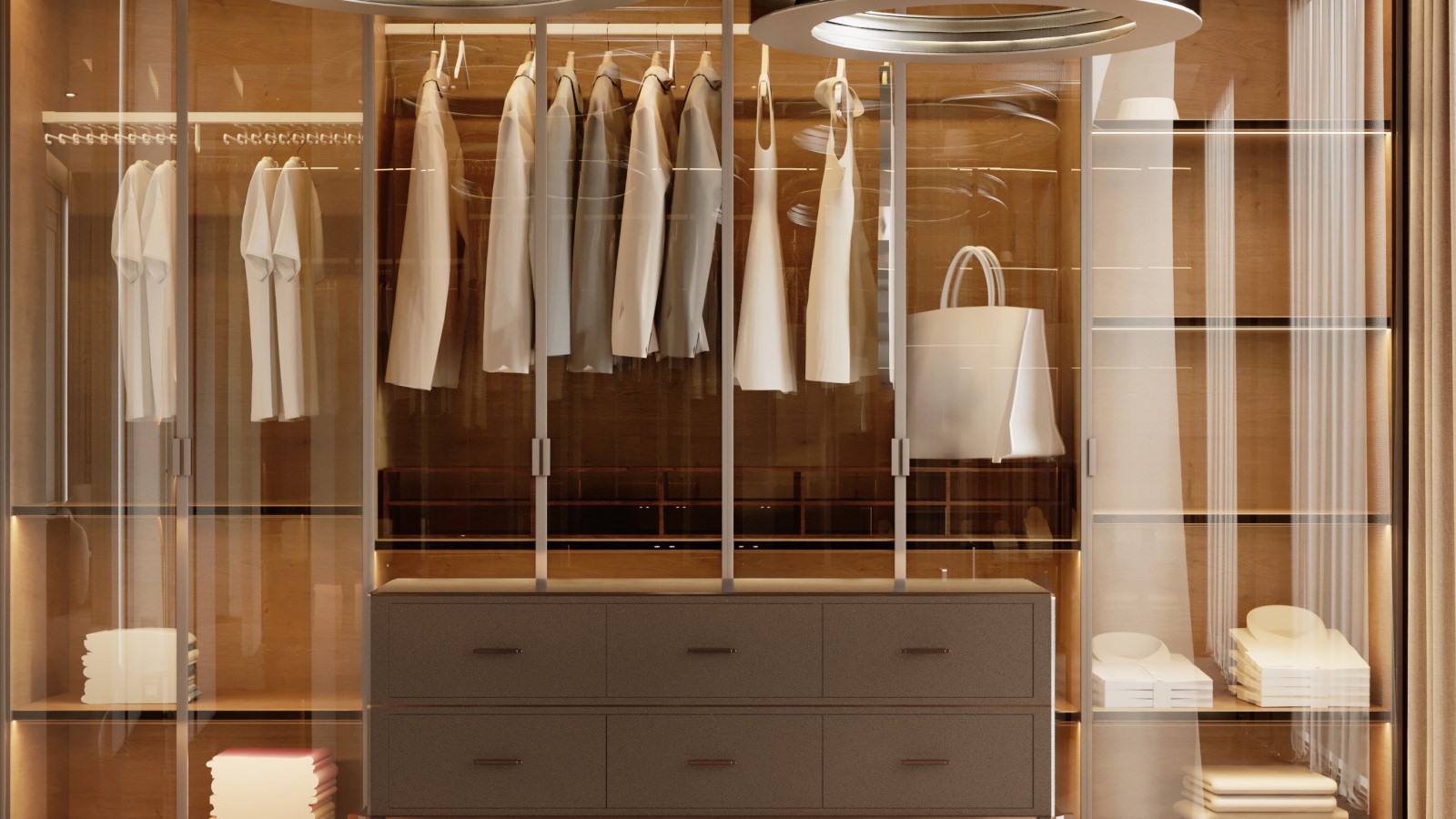

We’ve all heard about the benefits of decluttering and organizing the storage in your home. With some areas of the home, investing in a few storage containers and throwing away what you don’t need are the only steps necessary to keep the space tidy and functional. With bedroom closets, though, it’s not so simple.
Yes, the closet is a space that needs to be well-organized, but how do you achieve that and make it look good? After all, the closet is very much a part of your bedroom ideas. And if you have a walk-in closet it’s like having an extra room that’s part of your bedroom. Closets need to be both functional and aesthetically pleasing.
We’ve asked interior designers how they achieve a balance while creating closet spaces. Here are their top tips for organizing a closet in a way that’s efficient and easy on the eye at the same time.
How to aesthetically organize a closet
Want to create a closet that is well-organized and beautiful? Follow these top tips from interior designers to curate a space that blends style and substance.
1. Decide whether you want open, closed, or hybrid design
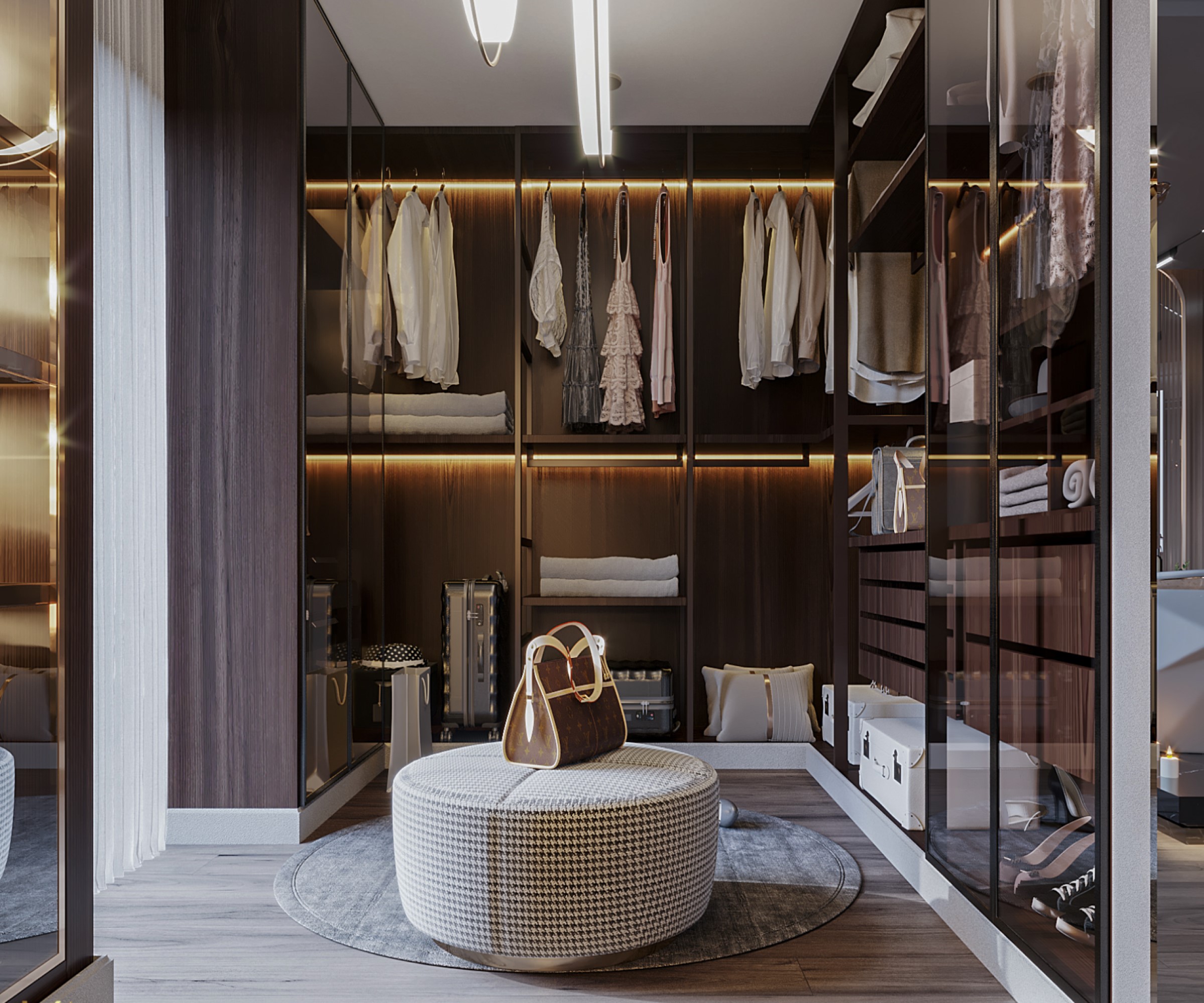
Deciding whether you want an open, closed, or hybrid design is easily the most impactful design decision that will affect both how you use your closet and the way it looks.
Ultimately, it’s up to you to choose between closed closet storage, an open or see-through design, or some combination of the two. Each decision will come with its pros and cons; however, our interior design experts both prefer a mixed design that has some open elements.
Emily Anderson, Senior Designer at Martha O’Hara Interiors, explains that closed storage can allow for 'a neat and aesthetically pleasing space', but a truly sophisticated design can include glass doors, 'that could help highlight certain pieces (purses, shoes, hats, etc.).’
Artem Kropovinsky, Interior Designer and Founder at Arsight, also favors closet designs that include open shelving and glass-front drawers because these ‘provide depth and allow for the display of your precious items as part of the decor.’
For most people, these open accents are more manageable than a completely open-plan closet because it’s easier to keep the display areas pristine even on days when the rest of the closet may be a bit cluttered.
2. Mix materials
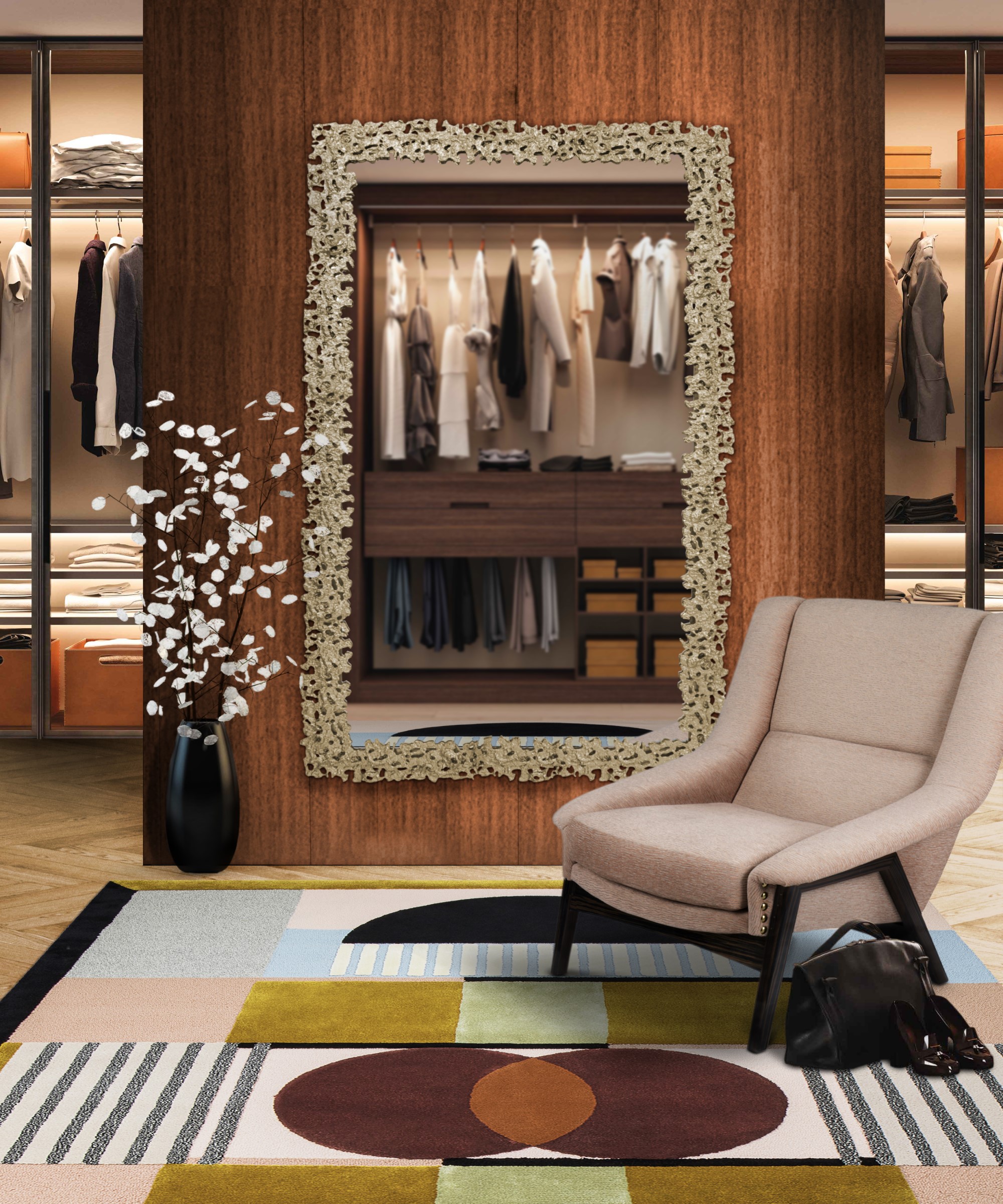
There’s another benefit to incorporating glass into your closet design. Mixing materials elevates the look of your closet while being functional. Artem Kropoinsky recommends experimenting with materials and textures even more by using ‘real wood with metal details and textured storage baskets, to create layers and turn organization into a luxurious experience.’
If you are updating an existing closet and don’t want to completely rebuild it, try adding aesthetic interest and texture with wallpaper. Emily Anderson says wallpaper is ‘‘a nice addition to elevate an otherwise utilitarian space.’’
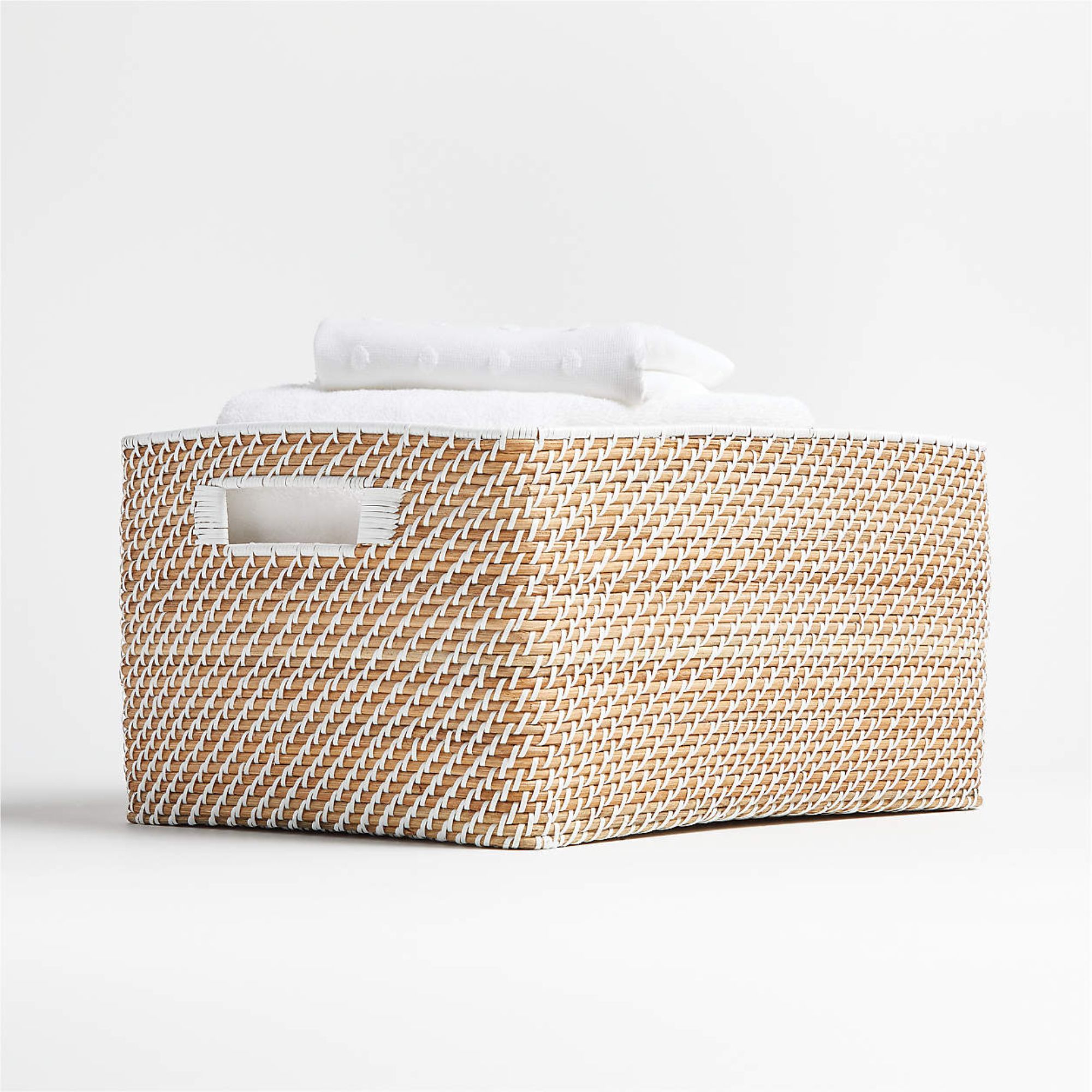
Handwoven from sturdy rattan and finished in white lacquer, this Sedona large storage tote from Crate & Barrel is a best-seller for a reason. It's perfect for neatly organizing bathroom items.
3. Pay attention to color
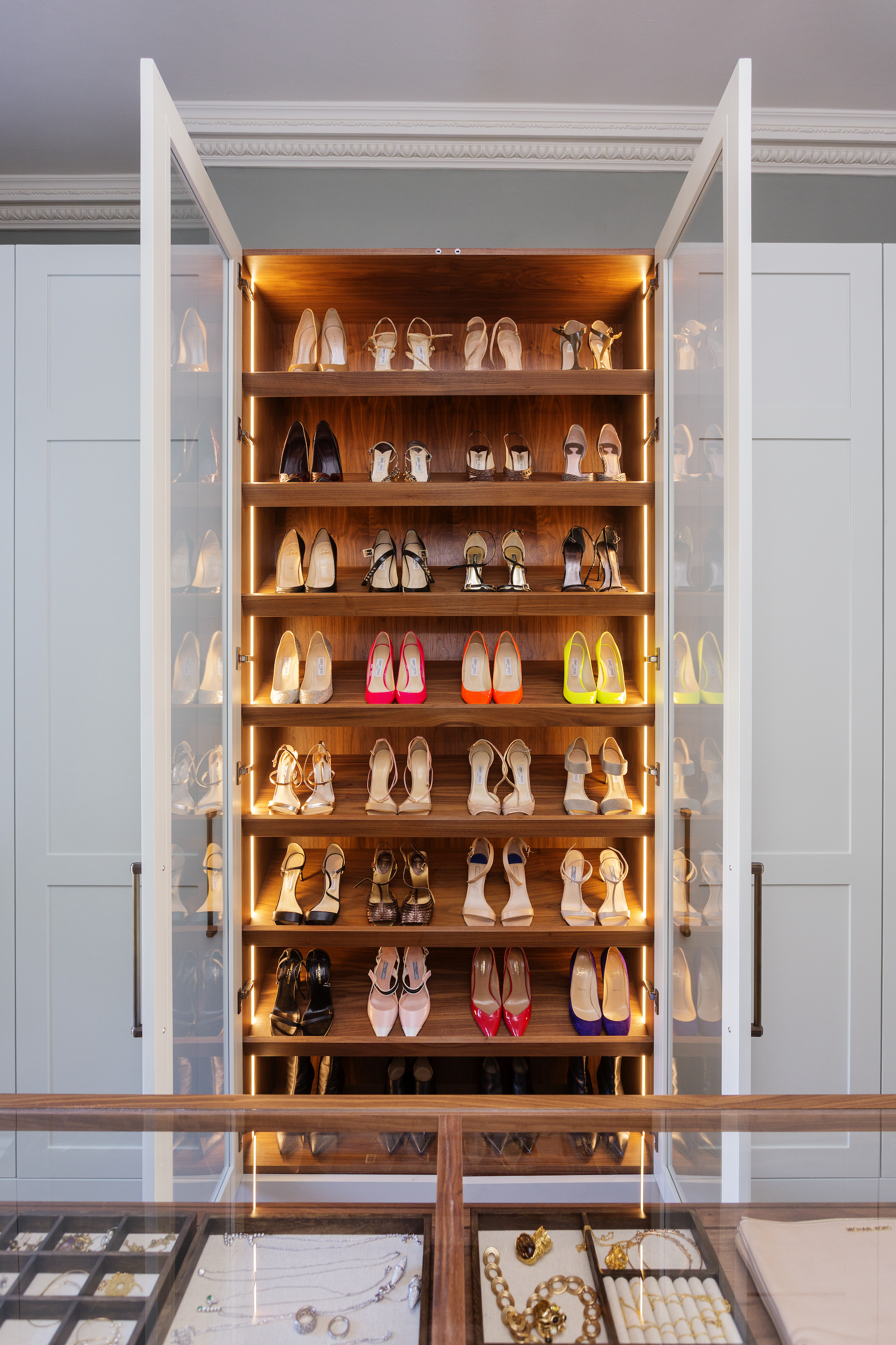
While mixing up textures can elevate your closet design, our experts recommend veering on the safe side when choosing your closet’s color scheme. Too many colors in this small space will make it look too busy and distract from its purpose as storage.
So, stick with a clear, solid color scheme. As Emily Anderson reminds us, color ‘can heavily impact your clothing choices’, so it’s best to pick ‘one overall neutral color for your walls, ceiling, and built-ins.’ Elegant neutrals work best here; avoid overly bold or trendy colors; as Anderson points out, ‘this storage space can also be rather difficult to re-paint, so make sure it’s a color you won’t tire of.’
Once you have settled on the background color and your closet is ready to be used, keep color in mind to make your closet aesthetically pleasing every day. Artem’s recommendation is to ‘create visual rhythm by organizing items by color or type thus making a harmonious and attractive presentation that adds to the closet aesthetics.’
Imagine how much more striking the shoe cabinet will look, for example, if you group your shoes by color. The same can apply to maintaining a color-organized closet.
4. Utilize the power of lighting
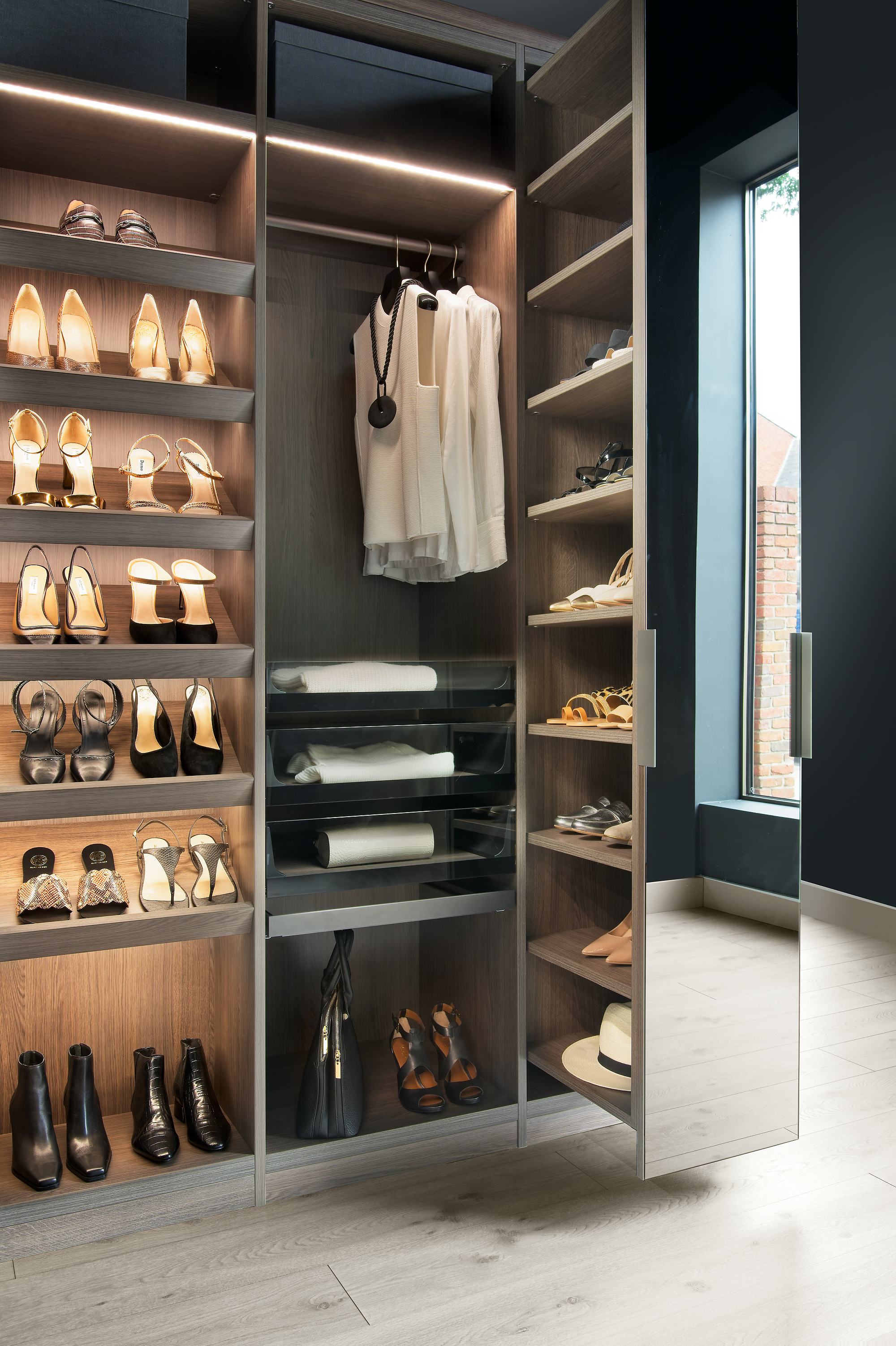
Lighting gives you a fantastic opportunity to add depth and really show off the standout items in your closet. If you want to keep things simple, a few well-positioned LED spotlights can make all the difference. Place yours strategically to illuminate the textures and colors, making the closet a living embodiment of personal style.
If you have more time and budget to play with, it's worth investing in more elegant, statement closet lighting ideas - this works especially well for large and walk-in closets. Emily Anderson highly recommends ‘stylish flush mounts, sconces, and chandeliers (over general canned lighting)’ because these ‘can impact the feel of your space and how you start (or end) your day.’
5. Add a statement piece
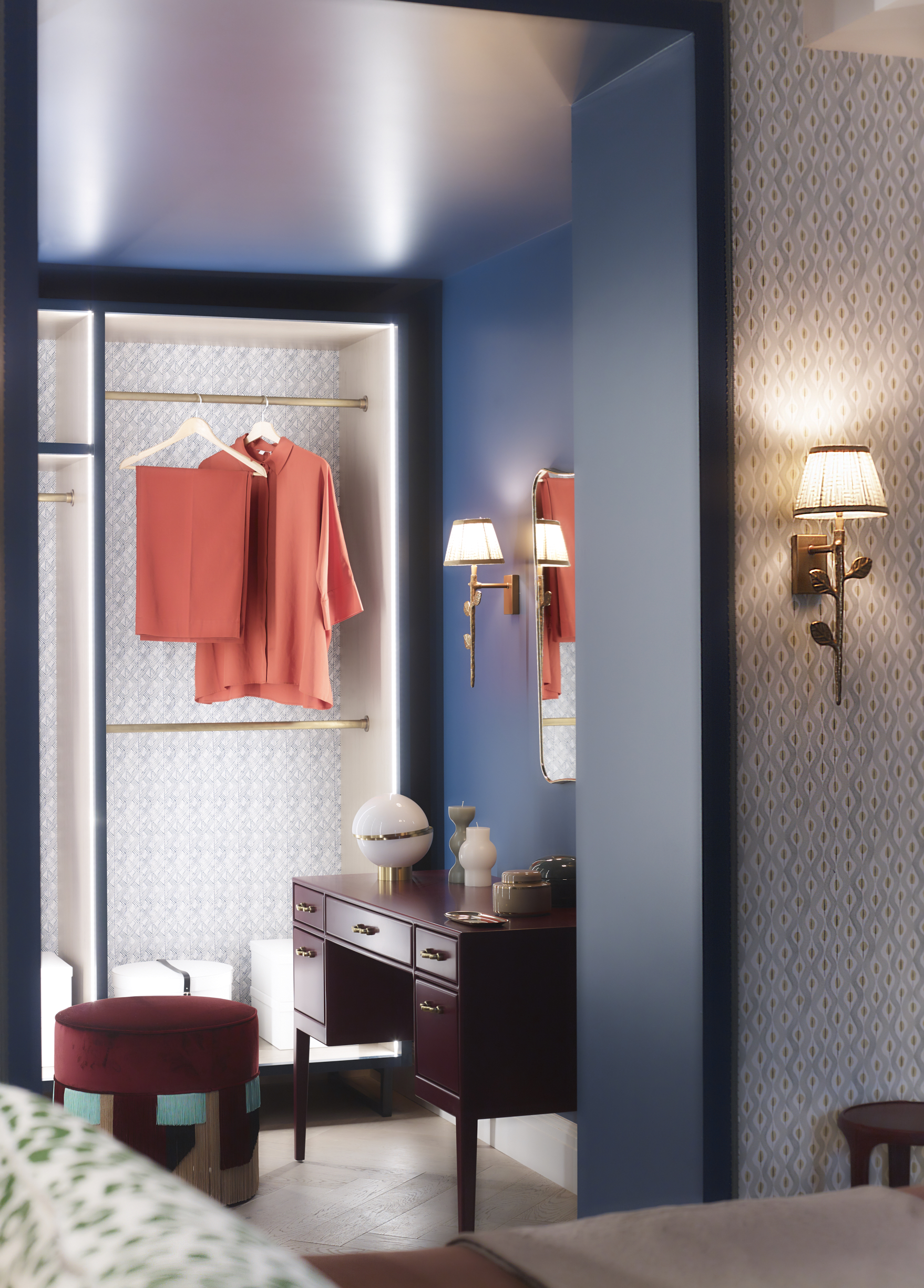
Another way to elevate the design of a closet - especially a walk-in closet - is by adding a statement piece of furniture. According to Emily, ‘a center island or center ottoman with storage not only adds functionality but also makes the most of what might otherwise be unused space.’
The thing with closets is that they can look a little bit clinical, so a piece of furniture that’s a little bit more personal can soften the look. Artem recommends adding ‘a quirky chair or an ornate mirror that will turn the space from merely functional into stylishly intentional.’
And if you have a small closet and don’t have the space for a chair or ottoman, try adding wall art in the area around the closet for a more personalized touch.
FAQs
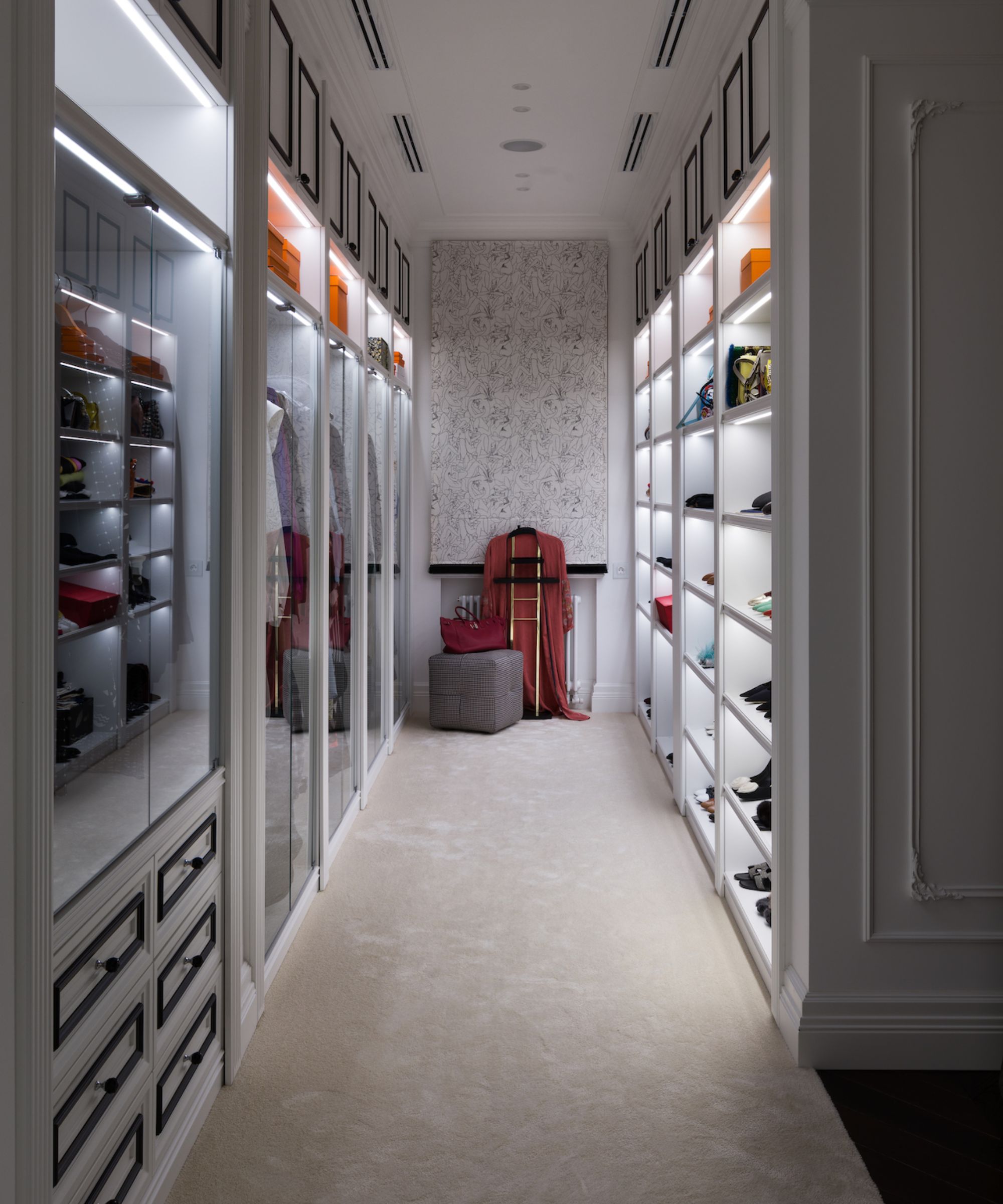
How do I keep my closet clutter-free?
This may sound obvious, but putting everything back where it belongs is a much better strategy than decluttering a closet which is time-consuming. When you’re designing a closet, you have the perfect opportunity to create a clean slate with all of your stuff designated a place.
Color-coordinating and categorizing can go a long way to training yourself to put things where they belong. If you are working with an interior designer, ask them to incorporate open-plan elements into the closet design as these will help you want to keep it clutter-free.
Should I hire an interior designer or closet designer?
If you’re doing a bedroom remodel and are thinking of hiring an interior designer, then they should be able to design your closet as part of the bedroom design. However, you may want to ask them if they have experience with closets; if you like the designer’s work but they don’t do closets, often they’ll be able to partner with a specialized closet designer to help achieve the look and quality you’re after.
Heather Cleveland, Founder of Cleveland Design Studio, likes a collaborative process where she ‘will often partner with California Closets to get the right "look" for the space. Once they have installed the right closet look for the client, we at HCD will come in and essentially stage the space to look almost like a high-end shop. Clients find this fun and exciting and report that they end up wearing so much more of their clothing because everything looks so inviting.'
Ultimately, whether you go with an interior designer or a closet designer, or decide to design your closet yourself, think about both function and aesthetics at every step of your design process.
Next, discover the things most organized people have in their closets.
Sign up to the Homes & Gardens newsletter
Design expertise in your inbox – from inspiring decorating ideas and beautiful celebrity homes to practical gardening advice and shopping round-ups.

Anna is a professional writer and academic. She taught English Literature for several years before joining Future where she wrote for Real Homes, Homes & Gardens and Livingetc for four years. She is a regular contributor for Parade Home, BiggerPockets, and many other publications. In her spare time, Anna enjoys hiking and gardening.
-
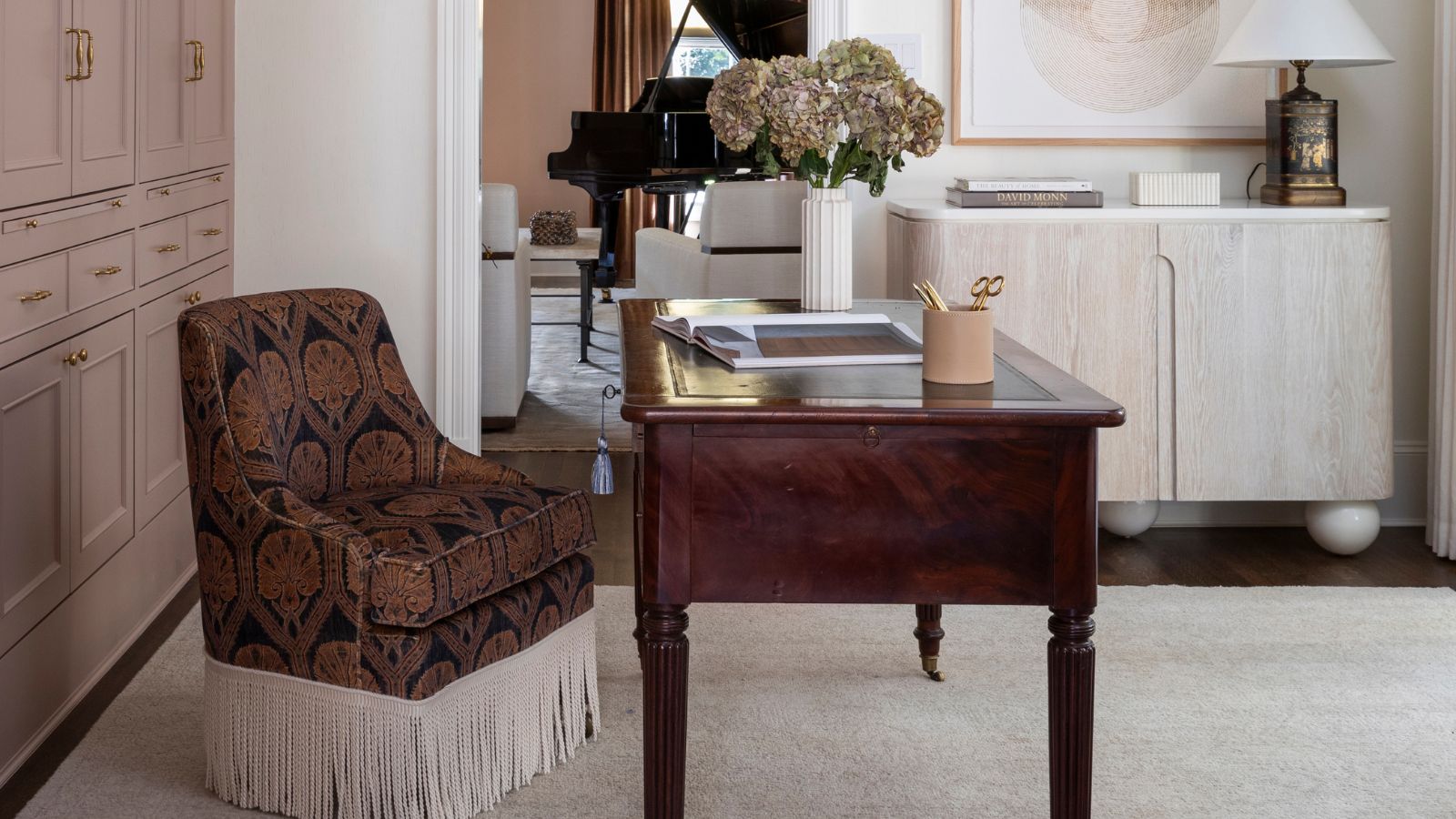 The rumours are true, the NYC trend for fringes and trimmings is actually happening – they are the secret weapon for making a room look expensive
The rumours are true, the NYC trend for fringes and trimmings is actually happening – they are the secret weapon for making a room look expensiveA trim or a ruffle is the finishing touch that can take a scheme from ordinary to the extraordinary in an instant
By Jennifer Ebert Published
-
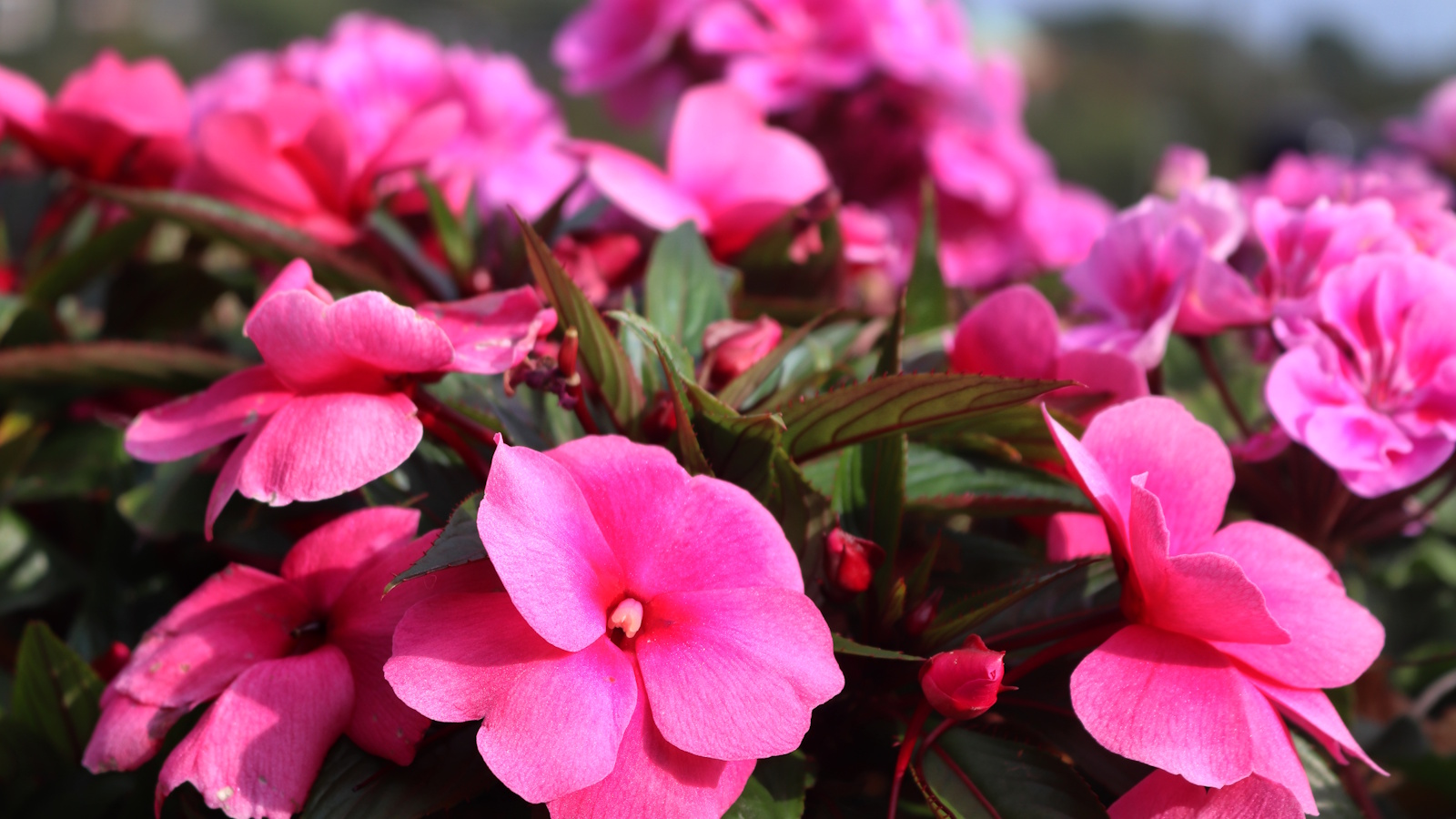 How to grow impatiens – garden experts reveal the secrets to growing this shade-tolerant, sparkling summer plant
How to grow impatiens – garden experts reveal the secrets to growing this shade-tolerant, sparkling summer plantBoth 'Busy Lizzie' and 'New Guinea' impatiens can thrive in shady yards
By Ellen Wells Published